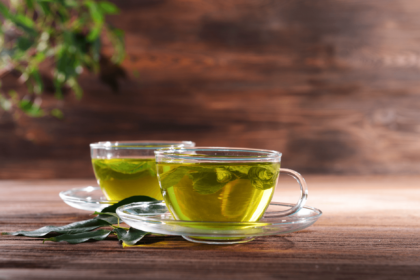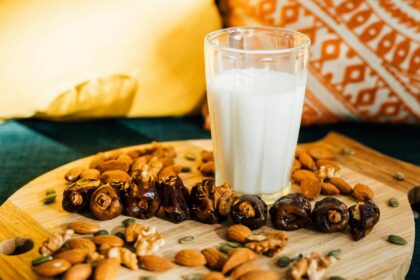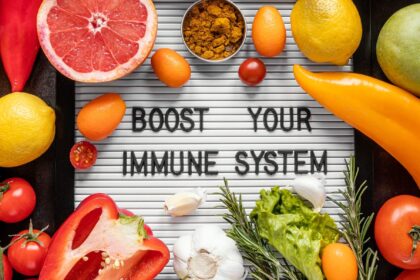Trans fats may be a topic you’ve heard a lot about. Although you might not realize it, these fats are extremely bad for you. Therefore, “Trans fats important facts you should know” about it. Unsaturated fats like trans fats can be either natural or synthetic. While artificial trans fats may cause health problems, natural trans fats are safe in moderation. But many other countries still do not have any laws restricting or forbidding trans fat use.
This article explains everything you need to know about trans fats.

What are trans fats important facts?
Natural and synthetic trans fats are the two main categories of trans fats that can be found in food. Some animals naturally produce trans fats in their guts, and as a result, foods derived from these animals (like milk and meat products) may contain trace amounts of these fats. In an industrial process, hydrogen is added to liquid vegetable oils to make them more solid, resulting in the production of artificial trans fats (or trans fatty acids).
“Partially hydrogenated oils” are the main dietary source of trans fats in processed foods. On food packaging, look for them in the ingredient list.
Consumption of these fats has decreased in recent years, due to increased consumer awareness. Moreover, US regulatory bodies like FDA (Food and Drug Administration) has prohibition of industrial trans fats products. The most well-known ruminant trans fat is conjugated linoleic acid (CLA), which can be found in dairy products, butter, lamb, and beef.
However, industrial trans fats or partially hydrogenated fats, also referred to as artificial trans fats, are harmful to your health.
What is the health impact of consuming foods that contain trans fat?
It is estimated that consumption of trans-fatty acids made industrially causes significant deaths annually. High trans fat consumption raises the risk of death from any cause by 34%, the risk of death from coronary heart disease by 28%, and the risk of coronary heart disease by 21%. This is probably because trans fat raises LDL (“bad”) cholesterol while lowering HDL (“good”) cholesterol levels in the blood.
Do they harm your heart?
Your risk of heart disease may increase if you consume artificial trans fats. Many studies found that people who consumed trans fats instead of other fats or better quality carbohydrates, showed a significant rise in LDL (bad) cholesterol and a corresponding decline in HDL (good) cholesterol. While raising LDL and HDL, other naturally occurring dietary trans fats are not linked to an increased risk of cardiovascular disease.
Do they affect insulin sensitivity and diabetes?
It’s uncertain how trans fats and the risk of developing diabetes relate to one another. A recent study, however, found no connection between eating trans fats and diabetes. Recent study found that trans fatty acids significantly increased the risk of metabolic diseases like type 2 diabetes and fatty liver.
Is there any relationship to inflammation with trans fats?
According to few studies, inflammatory markers increase when artificial trans fats take the place of other nutrients in the diet. However, naturally occurring trans fats are not connected to inflammation.
What is relationship to blood vessels and cancer?
It is thought that trans fats harmed the endothelium, or inner lining of your blood vessels. In comparison to a beverage high in saturated fat, a beverage high in trans fat reduced the function of the blood vessel lining and increased insulin resistance. This may aid in explaining the link between consuming trans fats and cardiovascular disease. Further research still required to looked at the connection between trans fat consumption and an increase in breast, prostate, and colorectal cancers.
Which foods contain trans fats?
The primary source of trans fat used in industrial production is partially hydrogenated oils (PHO). Industrially produced trans fat is commonly found in baked and fried foods from fast food joints and the street. These includes doughnuts, baked goods like cakes, pie crusts, biscuits, frozen pizza, cookies, crackers, stick margarines, and other spreads. The Nutrition Facts panel on a specific packaged food will show you how many trans fats are present.
Reading ingredient lists and keeping an eye out for ingredients labeled as “partially hydrogenated oils” will also help you identify trans fats.
How to avoid trans fats consumption?
Trans fats are no longer permitted in food in the US as of 2020, it is permitted to label their manufacturers products as “trans-fat-free.” But still there are fewer than 0.5 grams of these fats in each serving. Trans-fats are still produced in very small amounts when oils are heated during processing, despite the US ban. As a result, some foods may contain trace amounts. However, reduce the intake of highly processed foods in your diet as a result.
What is REPLACE?
The World Health Organization (WHO) has created an action plan called REPLACE to assist governments in removing industrially produced trans fat from the food supply quickly, completely, and sustainably. The practical, six-step plan calls for regulatory actions to be taken in order to eliminate industrially produced trans fats, promote the use and consumption of healthier fats and oils, and raise awareness among decision-makers, producers, suppliers, and the general public.
What healthy oils should be used instead?
PHOs are replaced by oils rich in polyunsaturated fatty acids (PUFA), then oils rich in monounsaturated fatty acids (MUFA), which shows significant health benefits. These oils may include safflower oil, corn oil, sunflower oil, soybean oil, fatty fish, walnuts, and seeds are among the foods high in PUFAs. Moreover, canola oil, olive oil, peanut oil, and oils from nuts and avocados are high in MUFAs.
What is the best practice for fully eliminating trans fat?
The most practical method for lowering trans fat in the food supply is to impose mandatory national limits on industrially produced trans fat. For mandatory limits, there are mainly two models. Few countries (like Austria, Chile, Ecuador, Hungary etc.) applies to both domestic and imported goods, limiting the amount of industrially produced trans fat to no more than 2 grams per 100 grams of total fat or oil in all foods.
And the second model applies in US and Canada, reclassifies PHO as a dangerous food additive or a contaminant or other adulterating substance in food, effectively outlawing industrially produced trans fat. Apart from this, Argentina and Colombia have 5% trans fat limits in oils and fats for other foods. In some fats and oils, India has 5% trans fat content restrictions.
How can I limit my daily of trans fats?
When eating out, find out what type of oil is used by reading the Nutrition Facts panel on the food you order. Change your diet to include monounsaturated or polyunsaturated fats in place of trans fats.
Here are some ways to restrict trans fats intake:
- Follow a diet that prioritizes nuts, poultry, fish, low-fat dairy products, fruits, vegetables, and whole grains. Additionally, avoid red meat and sweetened foods and beverages.
- The best vegetable oils to use are those that are naturally occurring and unhydrogenated, such as canola, safflower, sunflower, or olive oil.
- Choose for processed foods made with unhydrogenated oil rather than saturated fats.
- Replace butter with soft margarine and go for softer stick forms of margarine rather than harder liquid varieties.
- Avoid foods that may contain trans fat include doughnuts, cookies, crackers, muffins, pies, and cakes.
- Avoid commercially fried foods and baked goods made with shortening or vegetable oils that have been partially hydrogenated.
Conclusion:
The majority of trans fats are bad for your health. Although artificial trans fats are strongly linked to health issues, including heart disease, ruminant (natural) trans fats from animal products are considered safe in moderation. Artificial trans fats are also associated with chronic inflammation, insulin resistance, and even cancer, particularly in those who are overweight or obese.
Although trans fat consumption in the modern diet has decreased, many nations are still concerned about the average intake.
FAQ
Is natural trans fat harmful as well?
Changes in ruminant or industrially produced trans fat seem to have a similar impact on blood lipid levels. Less than 1% of total energy intake, or less than 2.2 g/day for a 2,000-calorie diet, is advised for trans fat consumption (industrially produced and ruminant), as advised by some experts.
Does frying or heating oil create trans fat?
Yes, there is proof that frying and heating oil at high temperatures causes trans fat concentrations to slightly increase. After heating and after frying, trans fat levels have been found to rise on average by 3.67 g/100g and 3.57 g/100g, respectively. Baking, boiling, and grilling, do not increase the concentration of trans fat.
Why should governments prioritize eliminating trans fat from the food supply?
Governments can save the lives of their citizens at a low cost by switching out trans fat in the food supply for healthier oils and fats. Experiences in numerous nations show that trans fats produced industrially can be replaced with healthier oils. WHO suggests banning trans fats as a cheap intervention for low- and middle-income nations. With a small investment, governments can eradicate the root cause of 7% of cardiovascular disease worldwide.
Why do some companies use trans fats?
Trans fats are simple to use, cheap to produce, and have a long shelf life. Trans fats give food a flavor and texture that people like. Trans fats are commonly used in fast food and restaurant frying because commercial fryers allow for multiple uses of these oils.
How do trans fats affect my health?
Trans fats cause an increase in your bad (LDL) cholesterol and a decrease in your good (HDL) cholesterol. Consuming trans fats raises your risk of heart attack and stroke. Additionally, type 2 diabetes is more likely to develop as a result.
Are there naturally occurring trans fats?
Beef, lamb, and butterfat all contain trace amounts of trans fats that are present naturally in some meat and dairy products. Further research needed, if these naturally occurring trans fats have the same harmful effects on cholesterol levels as trans fats produced through industrial manufacturing.
How much trans fat can I eat a day?
To lower your dietary intake of trans fat, the American Heart Association advises avoiding partially hydrogenated foods, and cooking lean meats, and poultry without additional saturated or trans fats. Adults who would benefit from lowering LDL cholesterol should cut back on trans fat and keep their intake of saturated fat to 5 to 6% of total calories.
Reference Used:
https://www.healthline.com/nutrition/why-trans-fats-are-bad
https://www.who.int/news-room/questions-and-answers/item/nutrition-trans-fat
https://www.heart.org/en/healthy-living/healthy-eating/eat-smart/fats/trans-fat





